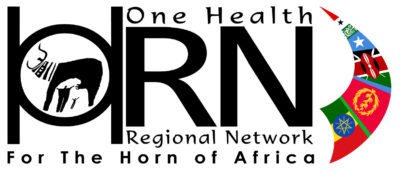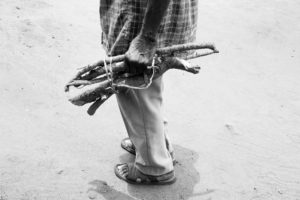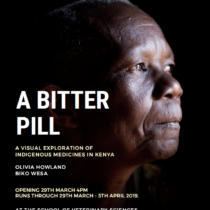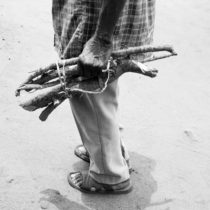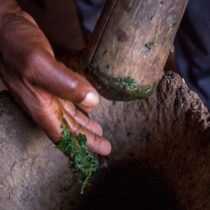In Kenya, and in fact much of the global south, clinical care is unaffordable to many. Institutions are underfunded, understaffed, under-resourced and staff are underpaid. Issues of training, equipment, knowledge, and corruption, mean that many clinical institutions are performing poorly and unable to provide efficient services appropriate to their community. Many people die unnecessarily as a result of this, or are very ill for a protracted period.
They chose two areas of Kenya in which to collect narratives and images of indigenous healers and their patients. Kilifi, which is now an urban coastal town, is the home of photographer Biko Wesa, who became co-investigator on this project. The second area in which we collected narratives for this project was Kasigau, home to anthropologist Olivia Howland. Mount Kasigau is located in a geographically remote area of southern Kenya. From studying these two locations, there emerges a number of both similar and contrasting narratives which we present in the form of individual stories through words and images.
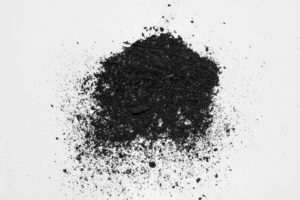
There are three major issues that have emerged throughout this project which affect decision making for health seeking:
Capitalism – people often cannot afford clinical medical care. This is made very clear in the national media and in Kenyan people’s consciousness. The government health care system is unfit for purpose.
Access – This relates strongly to capitalism in that people cannot afford to travel to faraway facilities. Rural areas of Kenya have incredibly poor coverage of clinical medical healthcare providers, and indeed the majority of facilities lack basic equipment or qualified staff.
Belief – many people do not trust clinical medical facilities, have had bad experiences, or do not believe that they can be helped there. This is not just the case in rural areas, but in urban spaces too. Treatment with herbs is seen as less dangerous or invasive than ‘chemical’ medicines. The homeopathic principle of treating like with like is very relevant here: there is a widespread belief that using ‘chemical’ medicines can react badly with an organic body, hence organics should be used to treat organisms.
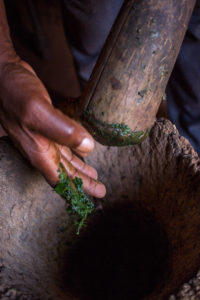 The aim of this publication is not to examine efficacy of indigenous methods of healing, but to encourage us all to question our realities, interrogate assumed normative behaviours and our personal privilege in relation to health and healing. We question why our concepts of healing may not all look alike and whether this delegitimizes individual human realities.
The aim of this publication is not to examine efficacy of indigenous methods of healing, but to encourage us all to question our realities, interrogate assumed normative behaviours and our personal privilege in relation to health and healing. We question why our concepts of healing may not all look alike and whether this delegitimizes individual human realities.
This research indicates that capitalism is killing Kenyans whilst making government or private clinical care unaffordable and inaccessible. NHIF or private insurance is beyond the reach of many. This reality might be a bitter pill to swallow, an uncomfortable truth.
If you would like to access the full copy of ‘hakuna dawa tamu’ please click here: A Bitter Pill e-book
If you have any further information please contact Dr. Olivia Howland: [email protected]
All photos courtesy of Biko Wesa.
